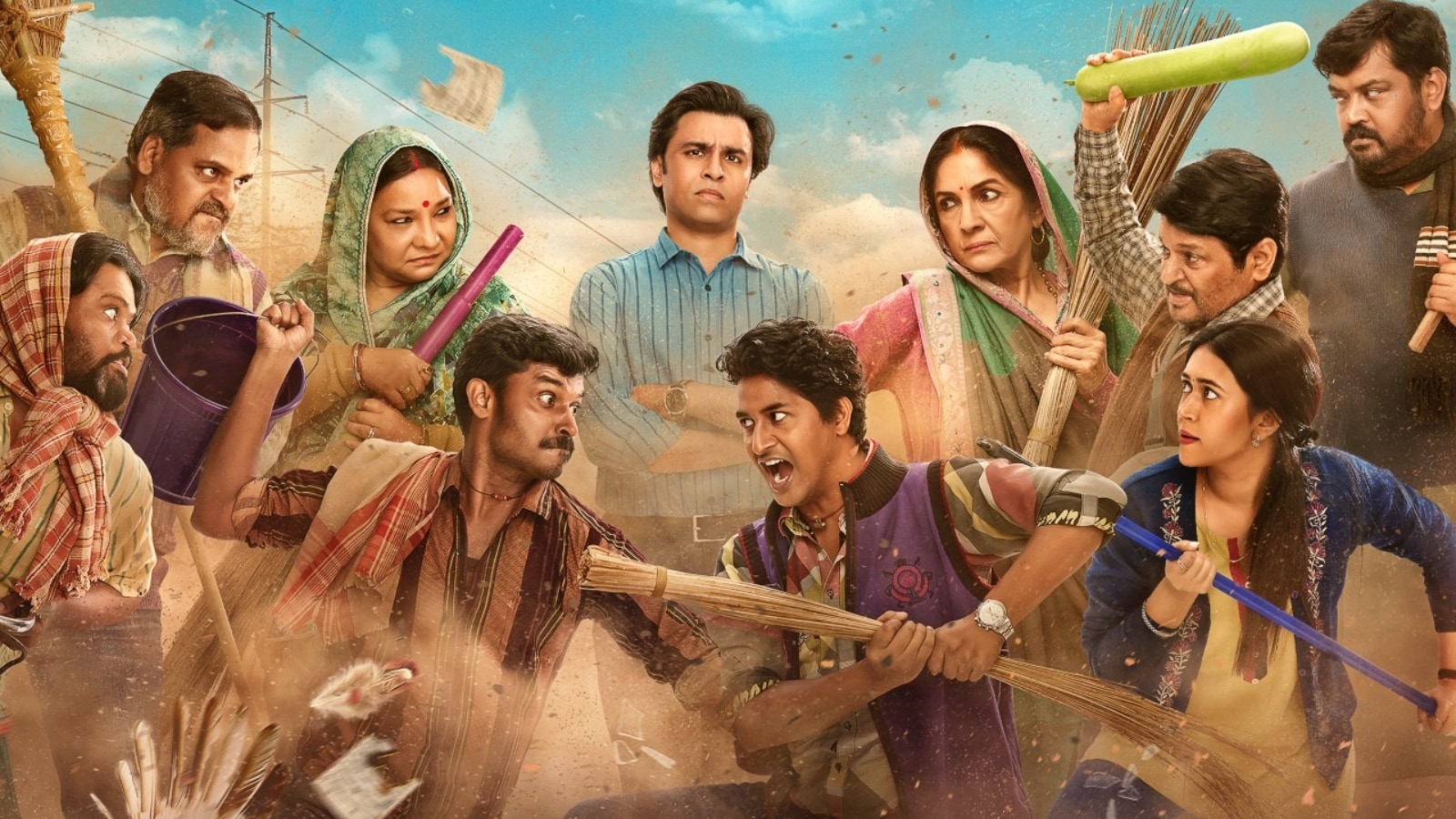This writer, known for dissecting socio-political currents, seldom covers international issues but almost never ventures into the realm of web series or films. To be clear, this is not a glossy review of Panchayat, but rather an invitation for Gen Z to explore the essence of rural Bharat through their phone screens.
This piece is a commentary on the essence of India’s villages, not a homage to a particular show.
Set in the fictional Phulera village of Uttar Pradesh, Amazon Prime Video’s Panchayat, crafted by The Viral Fever (TVF), weaves a tale that speaks to political hopefuls, civil service aspirants, and anyone curious about the heartbeat of public life in India’s 650,000-plus villages. Now streaming its fourth season as of June 24, 2025, Panchayat manoeuvres through the quirks, aspirations, and power plays of rural India with a rawness that feels like breathing the village air itself.
The story trails Abhishek Tripathi, portrayed by actor Jitendra Kumar, an engineering graduate stuck as Phulera’s panchayat secretary, his urban cynicism clashing with the village’s unpolished reality. This very dilemma pans a story that’s relatable, quirky, ludicrous, and hard-hitting, reflecting the simplicity and struggles of rural Bharat.
For those eyeing roles in governance or politics, Panchayat is a living textbook on grassroots India, where bureaucracy tangles with human eccentricity and local tiffs that brew beneath the surface. Season 4, the latest installment, digs into Phulera’s political narrative, with panchayat elections looming and Abhishek, the panchayat secretary, grappling with his MBA dreams, offering a window into the ambitions and frictions that shape the lives of today’s youths while discovering his fondness for Rinki, the daughter of the village chief (Pradhan Ji).
What makes Panchayat seminal is its raw, unfiltered, and natural resemblance to rural life. There’s no Bollywood semblance here, no forced drama—just the steady rhythm of a village going about its day. The plot moves like a bullock cart: deliberate, gripping, and real. The east-west factionalism in Phulera—analogous to the internecine feuds and schisms that exist in the society—stirred by schemers like Banrakas (Durgesh Kumar) and Kranti Devi (Sunita Rajwar), mirrors the small but fierce power struggles that define rural politics. The dialogues are the show’s spine, sharp and rooted.
Take Binod’s (played by actor Ashok Pathak) line, “Hum gareeb hain, gaddar nahi” (We’re poor, not traitors), a gut-punch that captures the fierce dignity of the penurious. Or the tender “Pyar mein dukh to hoga hi” (Pain is inevitable in love), tied to one of the many poignant scenes.
For political aspirants, Panchayat is a crash course in navigating loyalty, power, and community ties. It shows how schemes like Pradhan Mantri Awas Yojana or Swachh Bharat Mission seep down to the bottom and the struggle of the poor to avail themselves of such life-changing schemes. Also, one gets to learn the deep-down mechanism of such flagship schemes, which are merely names for anyone living in urban cities.
The village chieftain, Manju Devi (played by veteran actress Neena Gupta), the Pradhan, evolves from a puny housewife to a quiet tactician, showing how women can wield influence in a man’s world. It becomes imperative for young leaders to take notes on the gradual evolution of Manju Devi as the show furthers and she goes on to become a paragon of resilience, persistence, learning, evolving, and adapting amid chaos. Those vying to be civil servants may find Abhishek’s journey relatable to their own—charting into troubled waters, grappling with ethics for service and local politics akin to running with the hare and hunting with the hound, yet wading for purpose in the quandary. His internal struggle between Phulera’s influence and his urban aspirations mirrors the challenges faced by young officers stationed in India’s rural areas.
The casting is impeccable. Jitendra Kumar’s Abhishek is every urbanite who’s ever felt out of place, while Raghubir Yadav’s Brij Bhushan Dubey, the pradhan’s husband, brings earnest chaos to every scene. Neena Gupta’s Manju Devi and Sanvikaa’s Rinki add emotional loft, and side characters like Binod and Madhav inject humor and heart. The characters do not seem like actors performing a role; instead, they are residents of Phulera (phulerawasi), each with their own story and struggle reflected in their faces.
The web series Panchayat is also in a way reflective of rural Bharat’s contradictions—its aspirations, its grit, and its quiet rebellions. For those dreaming of public life, it’s a reminder that understanding India’s villages goes beyond policy papers and think tanks; it demands heart, patience, and an ear for the unsaid. As the show’s iconic water tank scene puts it, “Aap ek bar tanki ki chhat se dekh lo Phulera, pyar toh ho hi jayega” (One look at Phulera from the tank’s roof, and you’ll fall in love). Panchayat makes you love rural Bharat, thorns and all.
And to the Leader of the Opposition in the Lok Sabha, who once famously declared poverty a mere “state of mind,” here’s a sarcastic nudge: binge on Panchayat this weekend. Phulera’s struggles—its water woes, its scheming pradhans, its stubborn pride—might just show you that poverty is less a mindset and more a daily grind. Watch closely, sir; the pulse of rural India isn’t in manifestos but in the muddy lanes of villages like Phulera.
Yuvraj Pokharna is an independent journalist and columnist. He tweets with @iyuvrajpokharna. Views expressed in the above piece are personal and solely those of the author. They do not necessarily reflect News18’s views.
